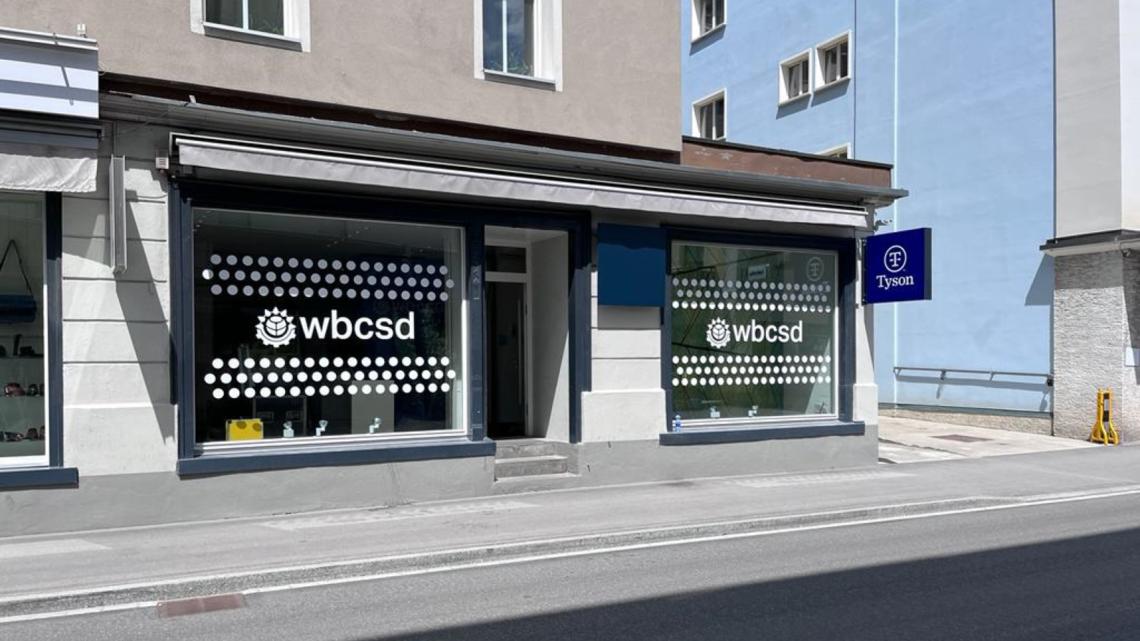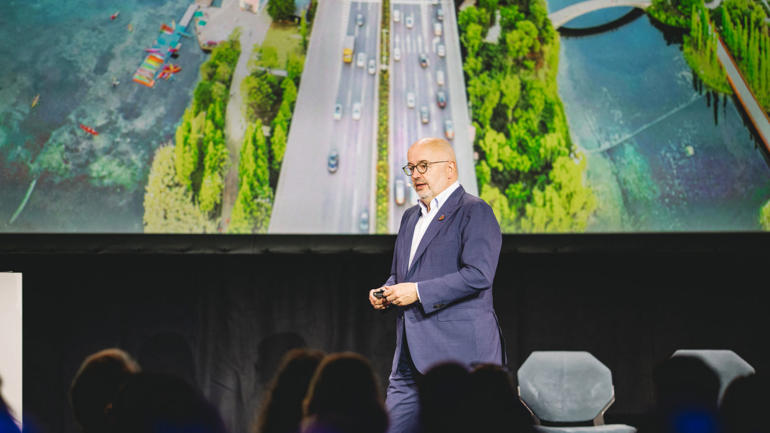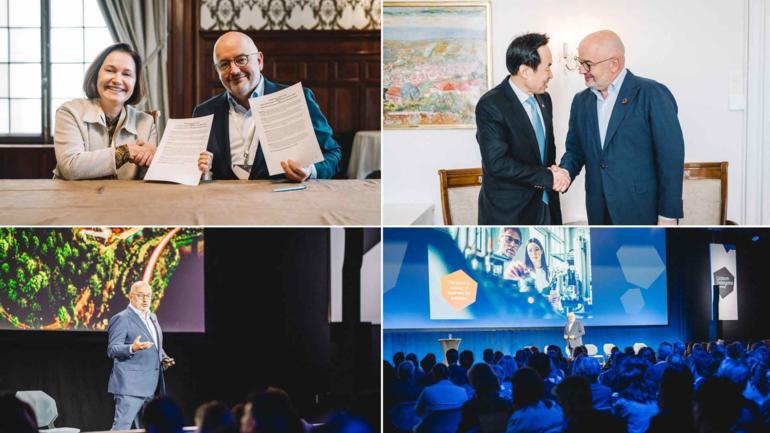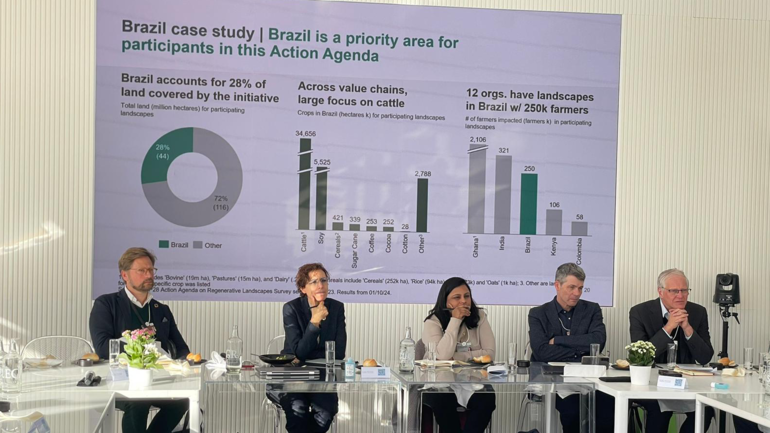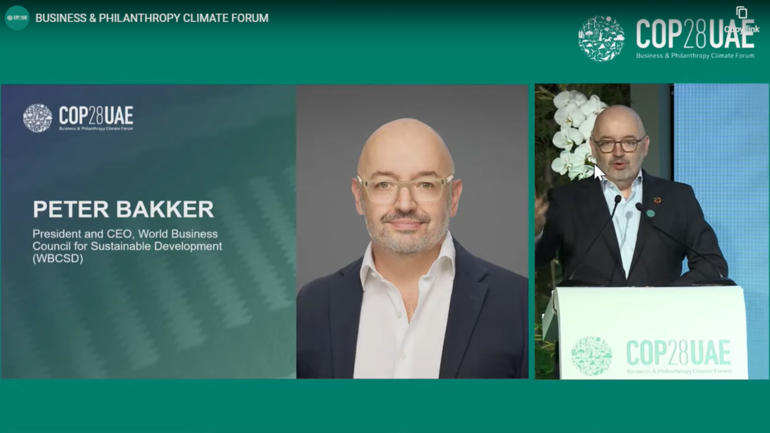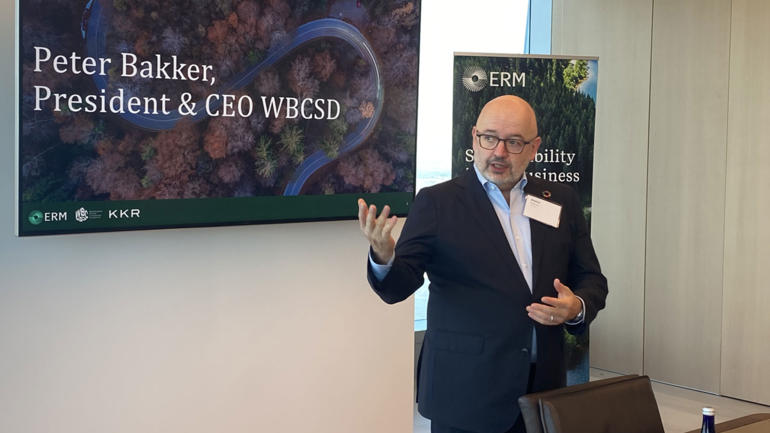For the first time in two and a half years, the World Economic Forum was able to gather its Annual Meeting in Davos again. Whilst the snow was missing and seemingly only half of the normal number of attendees were in town, the topics of conversation were no less important, given the very unsettling times we are living in today.
The Forum itself gave nine highlights of the week in its summary. In their order: the war in Ukraine, the economy, the future of globalization, two crises: food and energy, climate change and the environment and the role of business and entrepreneurs.
Whilst these are all key topics that need to be addressed, the thing that felt missing on the ground is how the various conversations are tied together. We will not fix the multiple crises based on IRR, we need to include people and planet into our decisions, investments, and actions.
In Davos, the Inequality agenda is still not central enough. I am hopeful that the launch of the narrative by our Business Commission to Tackle Inequality soon, will help shape the conversation and mobilize real action fast.
Ever since we published Vision 2050: Time to Transform last year, we have argued that we need a system-wide transformation of everything. We can’t fix the humanitarian crisis based on an IRR. We must act to decarbonize our economies now, whether governments put in place the frameworks or not. There is no time left to talk, we must act now and figure out the “how to”, together.
In Davos, I spent my time on two types of topics: the current crises unfolding from the war in Ukraine, and the long-term crises resulting from the climate emergency, loss of nature and mounting inequality.
Just a few data points on the short-term crisis in Food: before COVID, 135 million people were facing starvation, globally, every day. After COVID, their number grew to 276 million… Ten months from now – if we cannot open Odesa harbor in the next few weeks – their number will go up to 400 million people facing starvation, daily, globally, caused by the disruptions in the food and energy systems as a result of the war. For now, the crisis is driven by increased inputs and food prices, but in 10-12 months from now, there is a real risk of it becoming a crisis of food availability, not just in Africa but possibly in North America and Europe as well. How stark the contrast was the Oxfam report that illustrated that the billionaires in the food and energy space have gained $ 453 billion of wealth in the last two years. It is time to transform.
It was great to see all the food and agriculture companies take part in WBCSD’s discussion to mobilize business action on this food crisis. We will continue to mobilize the support in the coming weeks and months.
On the long-term challenges of Climate, Nature and Inequality, it is clear that progress is being made. All CEOs I met said the same thing: there are almost no sessions in Davos anymore where Climate is not discussed. The call to action is now clear enough and again the focus needs to move to the “how to”. How to account for and exchange Scope 3 emissions data; how to integrate ESG in decision making and performance management. Whilst in Davos, next steps for the TNFD framework were announced, and the Nature Positive dinner aimed to figure out how to set the right targets and shift financial flows from nature loss to nature-positive outcomes. The upcoming launches of ESG reporting guidelines by ISSB, EU and SEC were extensively discussed and business put out a strong call for a global baseline between all those efforts.
WBCSD’s CFO network is all over this topic by providing direct feedback to all standard setters by the more than 50 participating CFOs. If your CFO is not yet part of this network, please consider joining as the link between the governance and reporting developments and mobilizing action for the transformation that will run is one to really prepare your business for.
In Davos, the participants seemed to agree on the challenges at hand, so now we need to start putting in place the solutions at speed and scale. It is urgent, time is now to transform for a world in which 9+ billion live well, within planetary boundaries, by mid-century.
You can count on WBCSD to bring the “how to” to life, whether in Scope 3 emissions accounting, nature positive targets, the narrative for equity action, the transformation of your supply chain, or lowering your cost of capital.

